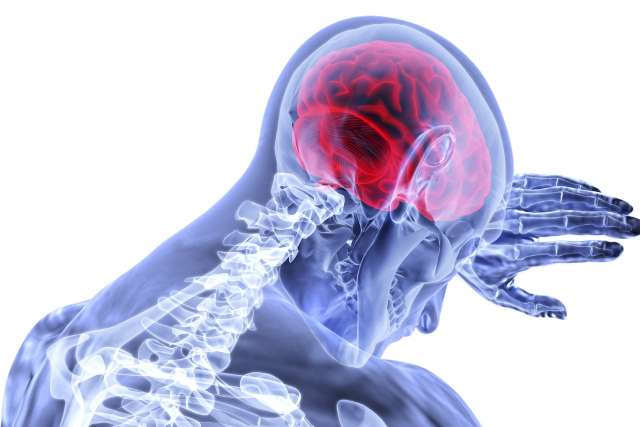UCLA Health has been recognized as a Clinical Center by the Alliance to Cure Cavernous Malformation for the treatment of cerebral cavernous malformations (CCM) in both adults and children. UCLA Health is one of only two clinical centers in California and ten nationwide to receive the designation.
A cerebral cavernous malformation, also known as a cavernous angioma or cavernoma, is a berry-shaped collection of abnormal blood vessels most often found in the brain and the spinal cord. They are a common cause of stroke, brain hemorrhage, and seizures in otherwise healthy patients. CCMs can grow at any age, including in children, though they are most likely to become symptomatic in young adults.
“The Alliance to Cure Cavernous Malformation is an important resource for patients and families that live with this complex disease, and we have worked side-by-side with them for many years,” said Dr. Anthony Wang, UCLA neurosurgeon. “We are honored to receive this recognition, as we believe that it reflects the elite care, expertise, and dedication that our team at UCLA Health brings to the care of our cavernous malformation patients.”
UCLA Health was required to meet specific criteria to achieve Clinical Center status including:
- The Clinical Center must have a designated Medical Director or Co-Directors who will serve as the point of contact for the Alliance to Cure Cavernous Malformation and who will ensure continuing compliance with Clinical Center criteria. The Medical Director will participate in the Alliance to Cure Cavernous Malformation Clinical Center Director Committee, enabling regular communication with other clinical experts.
- The Clinical Center must have designated Board-certified specialists to include at least one cerebrovascular neurosurgeon, a neurologist with cerebrovascular specialization, an epileptologist, a neuroradiologist, a nurse coordinator, and a geneticist who share an understanding of diagnosis and interdisciplinary management of CCM patients. The Alliance to Cure Cavernous Malformation requests that neurology staff be limited to 5 or fewer seeing our patients to ensure expertise. Pediatric facilities may substitute a pediatric neurologist for a neurologist with cerebrovascular specialization.
- Each Clinical Center must meet or exceed local and national standards of medical care. CCM-specific care standards should equal or exceed all consensus guidelines approved by the Scientific Advisory Board of the Alliance to Cure Cavernous Malformation.
- The Clinical Center must have a single point of entry allowing all appointments to be scheduled with one call. Administrative staff must have sufficient knowledge to respond to patient inquiries and coordinate patient care in a timely fashion.
- Imaging, neurosurgery, and neurology must have coordinated appointments over no more than 2 days, reducing travel burden on out-of-town patients.
- Clinical departments must provide printed patient materials with information about the illness. The materials may either be generated by the facility or be obtained from the Alliance to Cure Cavernous Malformation.
- The facility has the capability to perform 3T MRI.
- The facility must see a minimum of 25 CCM patients per year at the time of application.
- The Clinical Center has at least one nationally known specialist who has been a principal investigator of peer-reviewed, published CCM research.
- Clinical Centers will provide patient referrals to the Alliance to Cure Cavernous Malformation.
The designated, multidisciplinary team at UCLA Health and Mattel Children’s Hospital consists of:
- Anthony C. Wang, MD, Pediatric and Cerebrovascular Neurosurgery, Co-director
- Jeremiah N. Johnson, MD, Cerebrovascular Neurosurgery, Co-director
- Ana M. Tchicaya, NP, Nurse Practitioner and Clinical Coordinator
- Geoffrey P. Colby, MD, PhD, Cerebrovascular Neurosurgery
- Latisha Sharma, MD, Vascular and Pediatric Neurology
- John M. Stern, MD, Epilepsy Neurology
- Julian E. Martinez, MD, Genetics
- C. Travis Watterson, MD, Pediatric Neuroradiology
- Mersedeh Bahr-Hosseini, MD, Vascular Neurology
- David S. Liebeskind, MD, Vascular Neurology
- Jeffrey L. Saver, MD, Vascular Neurology
- Noriko Salamon, MD, Neuroradiology
- Gary R. Duckwiler, MD, Interventional Neuroradiology





